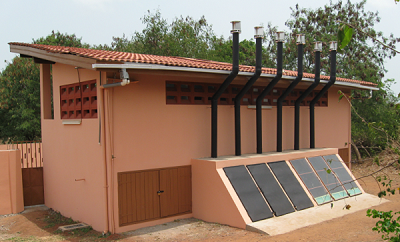
2018 World Toilet Day, where are the toilets when nature calls?
Kwame Asare Boadu
4 minutes read
Imagine you desperately needed a toilet to ease yourself and you could not immediately find one — that surely would be a terrible experience.
A toilet facility is often taken for granted but the reality is that it is an important basic necessity that is critical to sustainable health, sanitation and national development.
So as World Toilet Day is observed today, the nearly 4.5 billion people in the world who have no access to toilets would be looking for a change for the better.
The World Toilet Day is set aside by the United Nations (UN) to highlight the importance of toilets and inspire the world to take action to tackle the global sanitation crisis.
Across the globe, many nations, organisations and groups are undertaking various activities today to demonstrate how critical toilets are to the development of mankind.
Ahead of today’s activities, various international organisations issued statements to show the importance they attached to the celebration.
Zoning in on the theme of the celebration, “When nature calls,” UN Water said: “When nature calls, we need a toilet. But billions of people don’t have one.
This means human faeces, on a massive scale, is not being captured or treated – contaminating the water and soil that sustain human life.”
It added: “We are turning our environment into an open sewer. We must build toilets and sanitation systems that work in harmony with ecosystems.
World Toilet Day is about nature-based solutions to our sanitation needs. When nature calls, we have to listen and act.”
On July 24, 2013, the UN General Assembly adopted the resolution declaring World Toilet Day.
The resolution urges member states of the UN and other stakeholders to encourage behavioural change and the implementation of policies that will not only improve access to sanitation among the poor but also end the practice of open defecation.
Global picture
Globally, lack of access to toilets is still a major problem, in spite of the determination of the UN to galvanise member states to tackle the challenge.
Goal six of the Sustainable Development Goals (SDG 6) aims to ensure availability and sustainable management of sanitation and water for all by 2030.
However, the steps being taken to reach the goal have come under scrutiny, especially as the situation with toilets seems to worsen in some countries.
Recently, President Muhammadu Buhari, alarmed at Nigeria’s second position rating in global open defecation, declared a state of emergency on Nigeria’s water supply, sanitation and hygiene sector.
Media reports said President Buhari’s declaration was aimed at reducing the high prevalence of water-borne diseases in different parts of the country, which has caused preventable deaths.
Media reports said President Buhari’s declaration was aimed at reducing the high prevalence of water-borne diseases in different parts of the country, which has caused preventable deaths.
Ghana situation
This is why the theme for this year’s World Toilet Day is apt because when nature calls, one needs to find the right space to defecate.
For us in Ghana, however, when nature calls, millions turn to open defecation as the available option because there are not enough toilets in the system.
This country is among the top 10 countries in the world with the population having poor access to decent toilets.
WaterAid, in its 2017 state of the world’s toilets, said about 85.7 per cent of the population of Ghana was without decent toilets.
WaterAid, in its 2017 state of the world’s toilets, said about 85.7 per cent of the population of Ghana was without decent toilets.
In many of the communities, open spaces have been turned to toilets, which cast a bad image for the country.
Clearly, the aggregated cost of open defecation is enormous, which demands strong action from the authorities and indeed all concerned to reverse the situation.
Promises
On countless occasions, national leaders and the metropolitan, municipal and district assemblies (MMDAs) have made promises to fix the sanitation challenge, which includes the provision of toilets, but not much has been achieved.
In his quest to ensure a clean Ghana, President Nana Addo Dankwa Akufo-Addo was recently reported to have promised that his government would work to achieve the one household, one toilet facility promise.
He is said to have stated during a visit to the Northern Region that “very soon, by the grace of the Almighty and our hard work, open defecation in Ghana is going to be a thing of the past.”
These are refreshing words from the number one man of the land but suffice it to say that as a nation we have a long way to go.
In the cities, other big towns and even in the villages, open defecation is prevalent.
In spite of the existence of bye laws on construction of household toilets in the various MMDAs, the implementation of the laws have been virtually absent.
Apart from enforcing the laws, the assemblies must also build toilets to help reduce open defecation.
